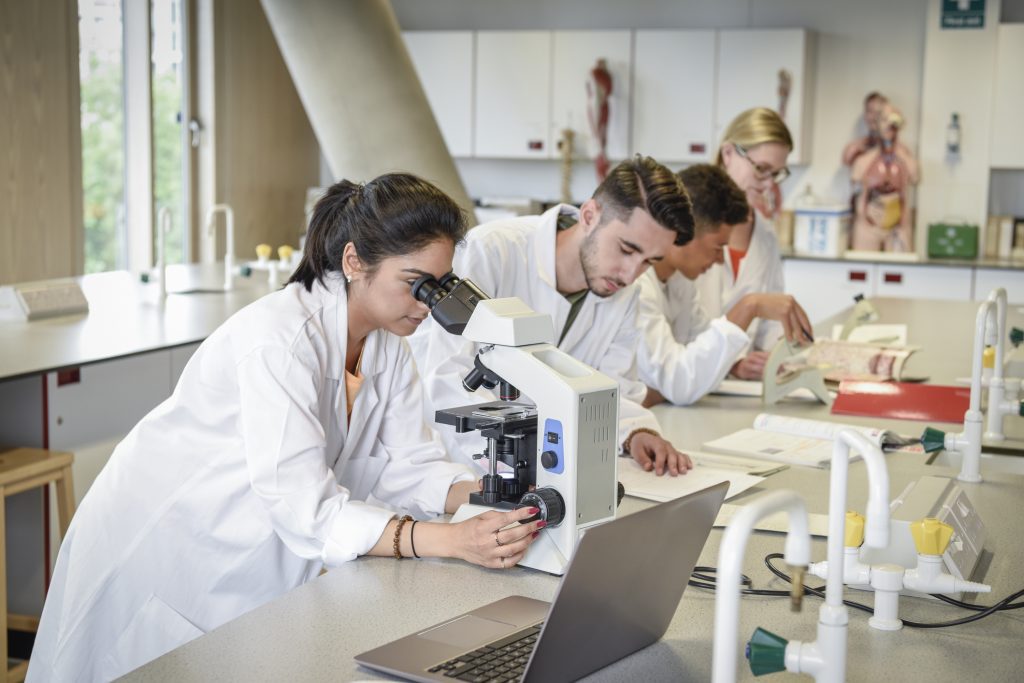
Overview
Participating in undergraduate research helps foster critical thinking, analysis, problem solving, and communication skills. It also fosters creativity, and understanding of the research process while simultaneously giving students the opportunity to explore different career options, and to develop new skills that round out their resumes or graduate school applications.
Strategies
Cultivate Positive Mentorships
Mentorship plays a strong role in the undergraduate research experience, and students who have an effective mentor are more likely to report positive undergraduate research experiences (Russell et al. 549). Mentoring provides the perfect opportunity for faculty to use their expertise to facilitate the personal and professional development of a burgeoning researcher. Student mentees gain opportunity to learn from someone with more experience and knowledge.
Consider Incorporating Research in the Curriculum
Course-based undergraduate research experiences offer the opportunity for an entire class to engage in research. Rather than applying for a research internship, or approaching faculty individually to find a mentor, students simply enroll in the course. These courses can be introduced at any level and they can be useful for alternatives students who are unable to complete traditional research experiences.
References
- University of Florida: Center for Undergraduate Research
- Teaching Beyond the Podium podcast (Center for Teaching Excellence, University of Florida): Using Jigsaw Discussions to Engage Undergraduate Students in Current Research | Transcript (.pdf)
- David Julian (University of Florida): Undergraduates as Researchers (ppt.)
- Patricia M. Maubrook (Northeastern University): Research Learning Contracts: A Useful Tool for Facilitating Successful Undergraduate Research Experiences (.pdf)
- Marion Schwartz (Penn State University): The Role of Advising in Undergraduate Research
- Carolyn Ash Merkel (2003). Undergraduate Research at the Research at the Research Universities (.pdf)
- Elizabeth Alderton & Michelina Manzi (2017). Engaging Students: An Authentic Undergraduate Research Experience (.pdf)